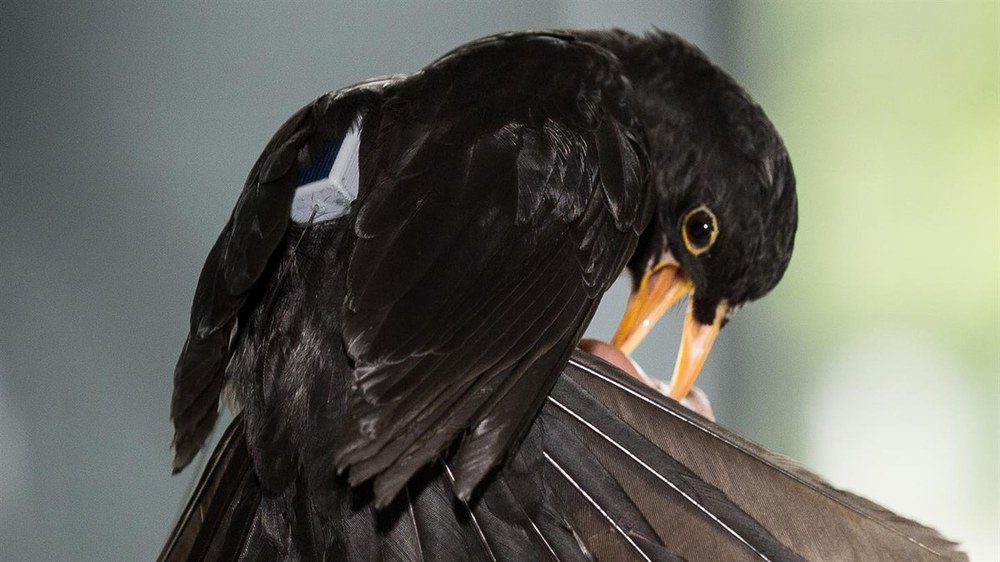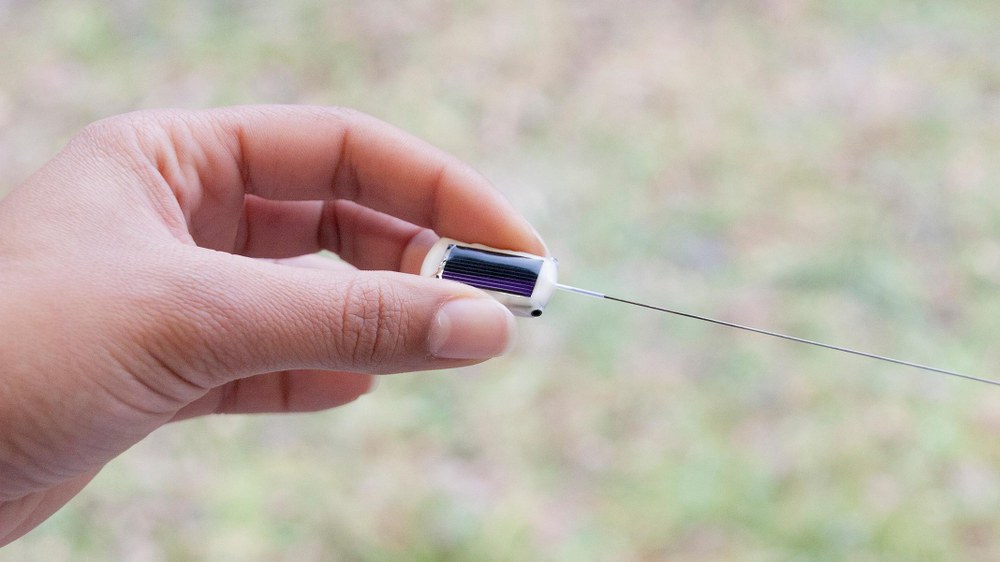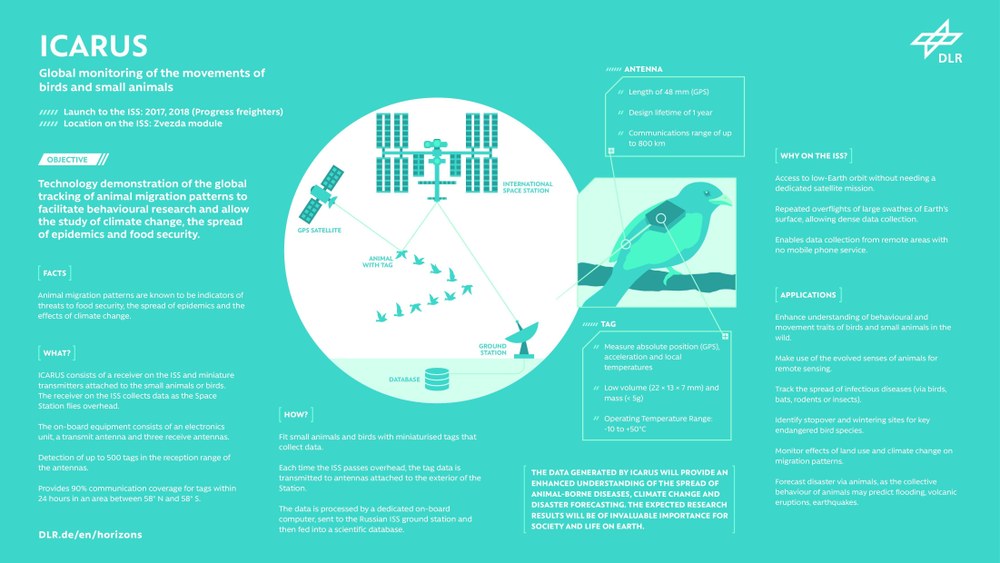Brochure: horizons mission (2018)
horizons – a journey of discovery for science an society


Max-Planck-Institut für Ornithologie/ MaxCine.

ICARUS is based on a cooperation between the DLR Space Administration and the Russian space agency Roscosmos. Using funds from the Federal Ministry for Economic Affairs and Energy (BMWi), the Max Planck Institute for Ornithology (MPIO) in Radolfzell develops a new system for the global tracking of animal migrations. The ICARUS system consists of two main components – small animal transmitters (tags) and the space hardware (antennas and on-board computer). With a weight of less than five grams, even small animal species, such as songbirds, can be equipped with these transmitters without affecting their behaviour.
The on-board computer and antennas were transported to the ISS using Russian Progress freighters on 14 October 2017 and 13 February 2018. While the computer is located in the interior of the International Space Station ISS, two cosmonauts will install the antennas on the exterior of the Russian service module Zvezda. On Earth, the tags collect data on animal behaviour. For example, they collect GPS data, acceleration and environmental data. To save energy and thus increase their lifetime, the tag’s transmitter and receiver are in 'sleep' mode most of the time. Data relating to the current ISS orbit is stored on the tag and these functions are only awoken when the space station passes overhead. Then they send their data to the antennas in orbit. The data is decoded via the ICARUS computer and forwarded to the Russian ISS ground station. From there, it is fed into a scientific database. The system, which has mainly been developed by German SMEs, is intended to provide an unprecedented level of precision and reliability.
German and Russian scientists are hoping that the data will not only provide new information about animal behaviour, but also expect to make findings about the spread of epidemics (e.g. bird flu, Ebola), the impact of climate change and the interplay between animal migrations and food security in critical regions.
